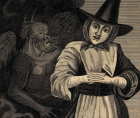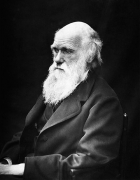Society
How people group together, organise their rules and systems are all part of what create a society. In this section articles examine the nature of society how it interacts with other themes of culture, power, etc. and how societies have developed and changed over time. The structures of the ancient world are explored as are the complex feudal systems and the varied societies of Empire and modernity.
Sort by:
Date (Newest first) | Title A-Z
Show:
All |
Articles |
Podcasts |
Multipage Articles
-

'Britain was our home': Helping Years 9, 10, and 11 to understand the black experience of the Second World War
ArticleClick to view -

Absence and myopia in A-level coursework
ArticleClick to view -

Bringing school into the classroom
ArticleClick to view -

Census 2021: using the census in the history classroom
ArticleClick to view -

Couching counterfactuals in knowledge when explaining the Salem witch trials with Year 13
ArticleClick to view -

Cunning Plan 173: using Black Tudors as a window into Tudor England
ArticleClick to view -

Cunning Plan 177: teaching about life in Elizabethan England by looking at death
ArticleClick to view -

Cunning Plan 178: How far did Anglo-Saxon England survive the Norman Conquest?
ArticleClick to view -

Cunning Plan 183: Teaching a broader Britain, 1625–1714
ArticleClick to view -

Cunning Plan 190: Using art to make A-level history more accessible
ArticleClick to view -

Decolonise, don’t diversify: enabling a paradigm shift in the KS3 history curriculum
ArticleClick to view -

Diversifying the curriculum: one department’s holistic approach
ArticleClick to view -

Engaging Year 9 with Victorian debates about 'progress'
ArticleClick to view -

Ensuring Gypsy, Roma and Traveller children do not feel unseen in the history classroom
ArticleClick to view -

Family stories and global (hi)stories
ArticleClick to view -

Fifties Britain through the senses: ‘never had it so good’?
ArticleClick to view -

Fighting a different war
ArticleClick to view -

Film: The Quest for the Lost of the First World War
ArticleClick to view -

Film: “The Talk Should Not Be Broadcast”: Homosexuality and the BBC before 1967
ArticleClick to view -
Folens: Everyday People & Everyday Lives
ArticleClick to view

